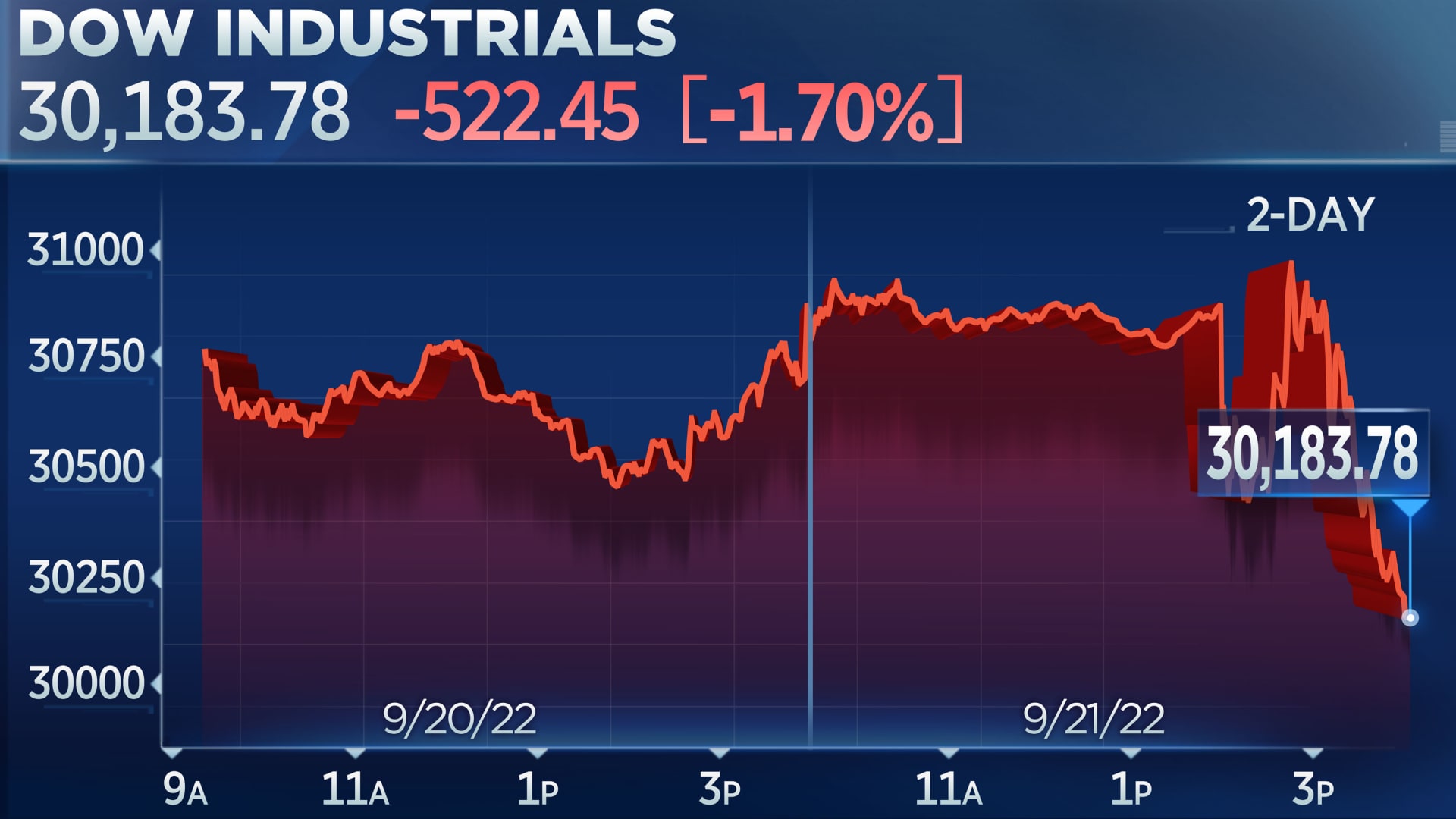Stocks slid in volatile trade after Fed rate hike
Stocks fell in volatile trading on Wednesday after the Federal Reserve hiked rates 75 basis points and forecast bigger rate hikes ahead in its fight to rein in soaring inflation.
The Dow Jones Industrial Average slipped 522.45 points, or 1.7%, to close at 30,183.78. The S&P 500 lost 1.71% to 3,789.93, and the Nasdaq Composite fell 1.79% to 11,220.19.
The S&P ended Wednesday’s session down more than 10% over the past month and 21% off its 52-week high. Even before the rate decision, stocks were pricing in an aggressive Fed tightening campaign that could tip the economy into a recession.
Stocks were volatile as traders analyzed the rate decision and the latest comments from Powell’s press conference. At its highest, the Dow gained over 314 points.
The Fed raised rates by a widely expected 75 basis points and said it expects its so-called terminal rate to hit 4.6% to combat still-high US inflation. This is the rate at which the central bank will end its tightening regime. The central bank also signaled that it plans to remain aggressive, raising rates to 4.4% by next year.
“You can only steer the ship into the storm for so long, but there comes a time when you have to batten down the hatches and with the Fed’s third straight 75 basis point rate hike in the past four months, players market should be looking at a hedge to weather the coming storm,” said Charlie Ripley, senior investment strategist at Allianz Investment Management.
Treasury yields grabbed the headlines. The 2-year rate, which reached its highest level since 2007, jumped to 4.1%. The 10-year rate jumped to around 3.6% at the day’s highs.
All major S&P 500 sectors ended the session in negative territory, dragged down by consumer discretionary, communication services, materials and a slew of growth names. Travel and entertainment stocks also took a hit with battered big tech stocks Apple, Amazon and Meta Platforms.
Read the coverage of the mercado de hoy en español here.



Comments are closed.